Neda Aria's Blog, page 19
September 17, 2021
Female Transgressive Writers of all time (Part 7)

In this post, I'll introduce another 5 amazing authors that I believe their writing can be categorized under Transgressive Fiction according to their style and themes, how they use the power of writing to transgress the norms of their society and culture. Today we will talk about Virginie Despentes, Lois Lowry, Ayn Rand, Margaret Atwood, and Paula Hawkins.
 Virginie Despentes
Virginie Despentes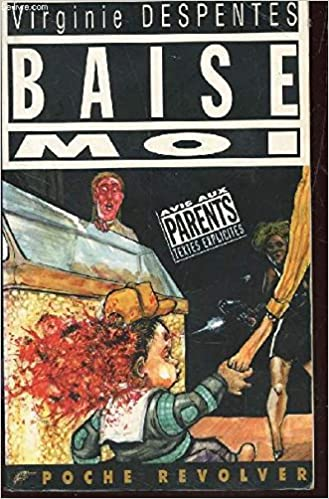
Virginie is an award-winning French writer, novelist, and filmmaker and is known best for her work exploring gender, sexuality, and people who live in poverty or other marginalized conditions. Her work pertains to the sexual revolution lived by Generation X and somehow praises pornography in public spaces through new communication techniques. Her work is loaded with a transgressive exploration of what are the limitations of obscenity as an antidote to the new moral order. The characters in her books and films normally deal with misery and injustice, self-violence such as drug addiction, or violence towards others such as rape or terrorism, the violence she has also suffered from (source).
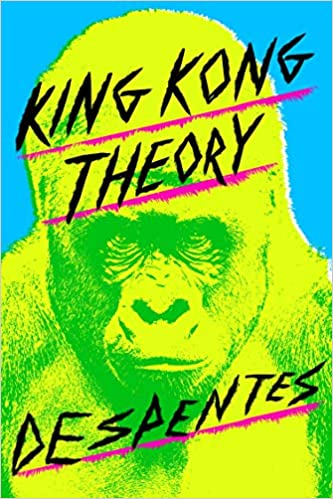
Virginie Despentes is best known for her incendiary debut novel Baise-Moi (Fuck-Me) that was published in 1993 and adapted into a controversial film that Despentes wrote and directed herself. For years after the release of her 1993 novel Rape Me, she was depicted
by French literary institutions as an outsider or "enfant terrible", and drew criticism from both the political left and right. Most of the reviews about her work were negative however her later work Apocalypse Bébé (2010) and the Vernon Subutex trilogy (2015–17) received many positive reviews. Her book King Kong Theory is most probably a gender study and "often passed down to millennial women as a recommendation from a cool, not-that-much-older mentor."(source)
Heterosexuality as we know it is so plain boring, dumb, dull and artificial, it has to be imposed upon people, otherwise they don't take it.- Virginie Despentes Lois Lowry
Lois Lowry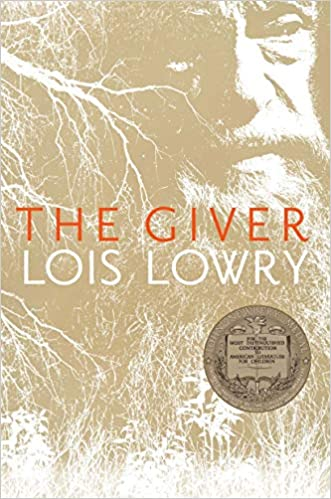
Lois Lowry is the author of several books for children and young adults, including The Giver Quartet, Number the Stars, and Rabble Starkey. She is known for writing about difficult subject matters, dystopias, and complex themes in works for young audiences. Many of her books have been challenged or even banned in some schools and libraries, including the first book of The Giver Quartet, The Giver (1993) which is considered a mandatory curriculum in some schools while being prohibited in others.
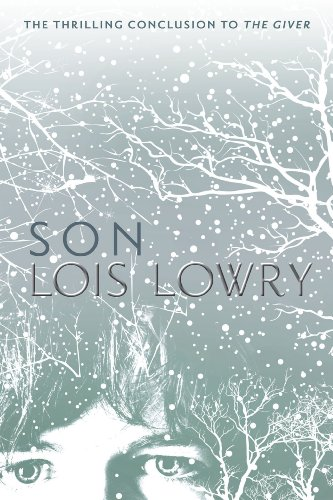
Lowry has explored several complex issues such as racism, terminal illness, murder, the Holocaust, and the questioning of authority, among other challenging topics which lead to both praise and criticism. The Giver (the first novel in The Giver Quartet) received a diversity of reactions from schools in America since 1993. According to the New York Times in 2012, The Giver had been perennially near the top of the America Library Association's list of banned and challenged books since its publication. (source) In a 2012 review of Son, the New York Times said the 1993 publication of The Giver had "shocked adult and child sensibilities alike".(source)
“If you were to be lost in the river, Jonas, your memories would not be lost with you. Memories are forever.”― Lois Lowry, The Giver Ayn Rand
Ayn Rand(February 2, 1905 – March 6, 1982)
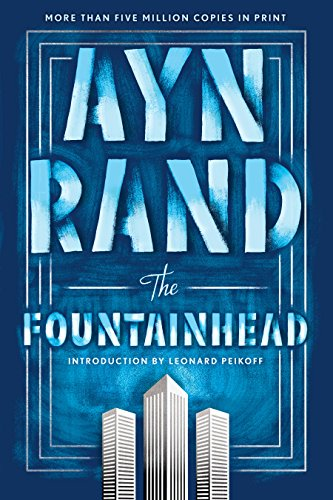
Ayn Rand is a Russian-American writer and philosopher known for her fiction and for developing a philosophical system she named Objectivism. (source) She was born and educated in Russia and moved to the United States in 1926. After two early novels that were initially unsuccessful, she achieved fame with her 1943 novel, The Fountainhead. The theme of the book focuses on the strength of the individual, the tug between good and evil, the threat of fascism. The confrontation of those themes, along with the amazing stroke of Rand's writing, combine to give this book its enduring influence. (source) In 1957, Rand published her best-known work, the novel Atlas Shrugged. This is a mystery story and a philosophical revolution told in the form of an action thriller of violent events, a ruthlessly brilliant plot structure, and an irresistible suspense.
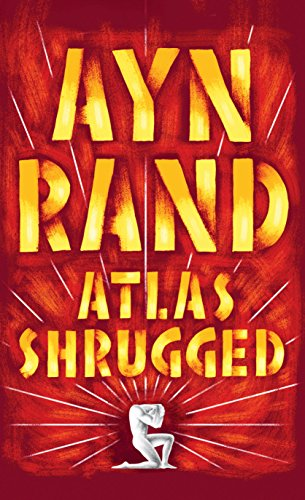
Afterward, until her death in 1982, she turned to non-fiction to promote her philosophy, publishing her own periodicals and releasing several collections of essays.(source)Rand by her time was a transgressive writer as she rejected faith and religion and supported rational and ethical egoism and rejected altruism. In politics, she condemned the initiation of force as immoral(source) and opposed collectivism, statism, and anarchism. Although Rand opposed libertarianism, which In the book Ayn Rand: The Russian Radical Sciabarra explains that she viewed as anarchism, she is often associated with the modern libertarian movement. Rand's fiction received mixed reviews from literary critics and academic philosophers have generally ignored or rejected her philosophy because of her polemical approach and lack of methodological rigor. (source)
“Freedom (n.): To ask nothing. To expect nothing. To depend on nothing.”― Ayn Rand, The Fountainhead Margaret Atwood
Margaret Atwood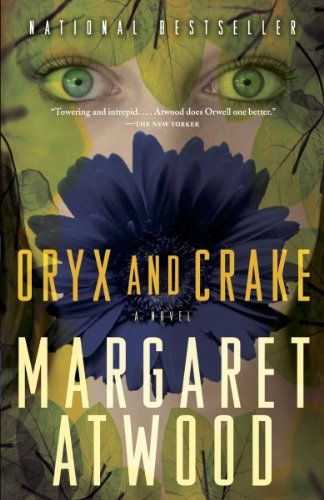
It's our turn to talk about our beloved Margaret Atwood. Atwood is a Canadian poet, novelist, literary critic, essayist, teacher, environmental activist, and inventor. Since 1961, she has published 18 books of poetry, 18 novels, 11 books of non-fiction, nine collections of short fiction, eight children's books, and two graphic novels, and a number of small press editions of both poetry and fiction. Let's not forget that she has won numerous awards and honors for her writing. In general, Atwood's works encompass a variety of themes such as gender and identity, religion and myth, the power of language, climate change, and "power politics".(source)
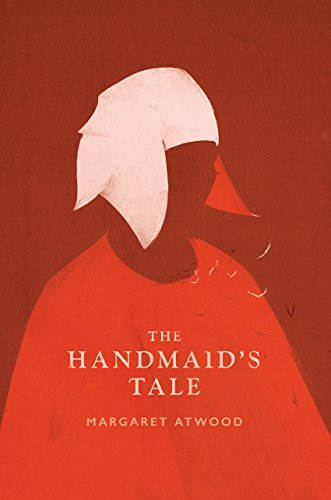
One of the most famous novels that is adapted into films and series much time, The Handmaid's Tale has been thoroughly analyzed within the context of this new subgenre of "transgressive utopian dystopias." (source) This book covers the interrelated categories of gender, race, and class, along with their relationship to classic literary dualism and the dystopian narrative. The story is told through the eyes of Offred, one of the unfortunate Handmaids under the new social order. In condensed but eloquent prose, Atwood reveals to us the dark corners behind the establishment’s calm facade, as certain tendencies now in existence are carried to their logical conclusions. It is funny, unexpected, horrifying, and altogether convincing. It is at once scathing satire, dire warning, and a tour de force. This is definitely one of the best transgressive literary works of all time.
“For Adam was first formed, then Eve. ‘And Adam was not deceived, but the woman being deceived in the transgression.”— Margaret Atwood Paula Hawkins
Paula Hawkins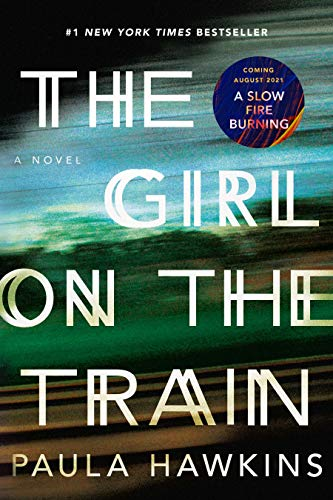
Paula Hawkins is a British author best known for her best-selling psychological thriller novel The Girl on the Train, which deals with themes of domestic violence, alcohol, and drug abuse. (source) The novel was adapted into a film starring Emily Blunt in 2016 and following that year, Hawkins' second thriller novel, Into the Water, was released. The Girl on the Train took her six months, writing full-time, to complete, at a time when she was in a difficult financial situation and had to borrow from her father to be able to complete it. The story is about a divorced woman who is an on-off recovering alcoholic who aimlessly rides a train into New York City every day after losing her job and her marriage. From the train, she fixates on the lives of her former husband Tom, his new wife Anna, and their neighbors and the nanny for their baby Evie.
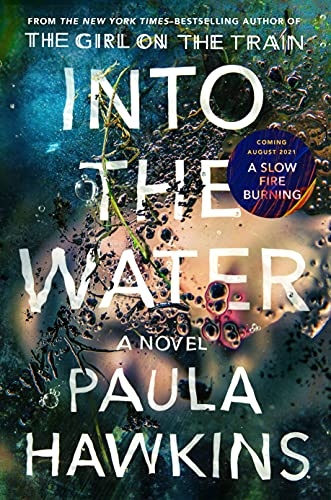
There are many critics about both the movie and the book seeing it as ultimately squanders for the sake of a hollow, ponderous plot. Alternately overly convoluted and predictable, the film relies too heavily on its twists while offering little in the way of character development, leaving its three central women as unrelatable and unlikeable stereotypes. (source)Reading this book you should expect tense, violent confrontations, as well as graphic scenes of people fighting for their lives and R-rated language.
“They’re what I lost, they’re everything I want to be.”― Paula Hawkins, The Girl on the TrainThat's all for this post. Check the links below if you're interested in more female transgressive authors and books. Until next post. Ciao!
June 11, 2021
Writer vs. Writer Interview: G.C. McKay
Today we have G. C. Mckay, one of the new writers of transgressive literature, psychological horror, and philosophical novels which explore the dark and disturbing recesses of the human psyche. I got to know about him on his Youtube Channel in which he interviews other authors in the genre, reviews transgressive books, or chitchat with his fellows who they call themselves, "the bastards". Well, I guess it's easy to understand he became one of my favorite writers and authortubers at the moment. Let's see what this witty, sarcastic, and fearless author has to say.

1.Hi there McKay. First thing first, tell us when did you decide to become a writer in the Transgressive Genre.
In truth, it was never really a conscious decision but more of a blatant inevitability, knowing what got my juices flowing throughout the years that led to my writing endeavors. I do remember wondering, whilst penning my earliest pieces, ‘just what kind of genre is this, realism?’ Then, after some research, I stumbled across Transgressive Fiction and thought, ‘ah, shit. Yeah, that’s me. Fuck.’
2.That was my immediate reaction too. What is it about the Transgressive Genre that attracts you?
I think my fellow bastard from the podcast, Cody Sexton, summed it up fairly recently actually, describing it as “the only genre out there with any balls left.” I couldn’t have put it better.
3.Couldn't agree more. But I'm curious. What do you think makes a good story?
Anything that assaults your psyche whilst writing it, potentially re-wiring your brain’s chemical makeup. Now, that sounds wank, but I do believe literature should challenge the reader’s perception rather than just simply entertain. If it can do both, then great, but there’s enough mindless entertainment out there as it is, so I’d favour attacking the reader over simply distracting them in between scrolling through their goddamn phones.
4.Exactly. Many people write for the pleasure of a mass who do not have any desire to think. Transgressive Fiction and art are not for the mass. May I know when did you first realize you wanted to be a writer? And as a child, what did you want to do when you grew up?
After training to be an actor and becoming disillusioned with its career prospects and the majority of plays out there. Around 90% of them kind of repulsed me, whilst the dangerous, remaining 10% got me thinking that I’d like to try my hand at producing something even better. I naturally fell into literature as I became more reclusive, since I preferred the individual responsibility of the art. When working in film, for instance, you’re let down by people a lot. With writing, you’re the only one who can make it happen.
As a kid, I fell into fantasies of all sorts, usually based off movies I adored. All of them seemed to involve pretending (acting) so I presumed that was what I wanted to pursue. As time progressed, I realised it was more narrative and storytelling that really buzzed me, so here I am, mythologising my life away.
5.Fantastic. For each of your books, how long did it take you to write?

The more I write the more I realise that each book comes with its own demands. I believe it takes a minimum of five years to become any good at it, or at least find your voice and style. Fubar took me close to 4 years, whilst Heather took 7 months. Since the former was my first novel, and is over double the length of the latter, I believe that’s where I learnt the most about what I was trying to accomplish with my writing. Nowadays, I don’t pay too much attention to time, since I generally write the first few drafts and then leave a piece alone for weeks or months at a time. Sometimes longer. I’ve found this to be the best way of becoming truly indifferent to your own work, where you can look at a story with a stranger’s eye, so to speak, then really ‘see’ what kind of story is on the page. In essence, I let the story tell me what it wants to say, rather than the other way round. It’s a little schizophrenic, I must say. I also read my stuff aloud, a lot, and discuss it with myself whilst doing so. Just in case you needed further proof, ha.
6.Then do you have any writing routines?

Again, it depends on the piece, but with Heather, I did set myself a deadline for release and stuck to a very strict routine of at least 3-4 hours a day. At the beginning of any new work, I just write, look over outlines and re-write them, write more, then let the story reflect what it wants to say back to me, as mentioned. If something feels off, like when you hit the final third and seem to be stuck, that’s when I’d go back to the beginning and look over its progression and hunt for why I’m getting stuck. That’s probably where I’m at my most insane, since it can drive you a bit barmy at that delicate stage. So, to be clear, I write the first two-to-three drafts without too much revision, then go at it with a butcher’s knife for relevance, redundancy, themes, atmosphere, lexical style, correlation, mood, and connecting dots.
7.2-3 times drafting without revision? I can't do that. So normally, where do you get your information or ideas for your books?
Life and all its bitter disappointments.
8.Haha, exactly. That could be my answer as well. Which author inspires you the most and why?
I think any author with the guts to go places most wouldn’t. The list would go on a bit, but Bret Easton Ellis and his magnum opus, American Psycho, was the first book that got me thinking, ‘holy fuck, I can just say whatever the fuck I want?’ The liberating quality of that notion certainly got the better of me in the end.
9.I guess that's how all of us transgressive writers feel. "Freeeedooome'... May I know what does your family think of your writing?
All families are psychotic. Never let them read your work. Some of them will though. My cousin’s review went, and I quote, “it’s utter filth.” My mother appreciates the satirical element but has implored me to “tone it down a notch or two.” Since then though, I think my work has only gotten worse in that regard.
10. Have the same experience with my husband saying 'that makes no sense! Why do you write about these things?' What was one of the most surprising things you learned in creating your books?
That I’m probably far more mentally ill than I’ll likely come to truly realise. Though writing itself is a fairly absurd thing to pursue, so that’s probably not all that surprising. Seeing the patterns of your thought processes is rather alarming though. Your mental apparatus seems far more scripted than you ever really realised before writing.

11.Apart from books, you’re active on YouTube as well. Tell us a bit about it.
“You need a platform” is something you hear a lot as a writer these days. Publishers apparently won’t touch you unless you’ve already got a following. That dilemma aside, I started a podcast of my own a few years back, just narrating short stories to begin with. That seemed to gather some clout on youtube, so I gradually moved on to reviewing books and trying to grow an audience from there. At the moment, I’m looking to improve my film editing and taking certain elements in a different direction, but literature will always find itself interweaved throughout my efforts somewhere. I’ll go back to reviewing books in a similar fashion soon enough, since the new videos take just as much editing as a novel would, but I think the quality of them will speak for themselves.
12.How many books have you written? Which is your favorite?
Three. Two novels, Heather and Fubar, and a short stories collection, Sauced up. The latter was my first release and the former my latest. Picking a fav is difficult. Whilst I think Heather demonstrates my skillset as a writer the most, Fubar and I will always remain on intimate terms, whether I like it or not. If somebody wanted to check out my work, I’d recommend Heather in most cases.

13.Do you have any suggestions to help others to become better writers? If so, what are they?
Though I’m tentative to mention King, I think he summed it up in accordance with myself when he said, “read a lot, write a lot.” That’s fundamental, sage advice. Just fucking write and fucking read. Period. My other tips would include letting the story tell you what it wants to say (obviously after the first few drafts), look at what you’re putting your protagonists through then make it worse, accepting your limitations and seeing them as a good thing, and lastly, just leaving WIPs for weeks or sometimes months at a time, which I’m repeating here for emphasis.
14.Last question. What creature defines you best? Get creative.
At the risk of sounding wank again, probably a lone wolf. There’s a lot of misconceptions regarding this notion though. Usually, a wolf would only break away from the pack with the idea of forming his own. After failing, he would go back to his original tribe, only to be shunned for abandoning them in the first place, hence his fate of a becoming a lone wolf. For some reason, that’s always resonated with me. As an artist of the dark side, as it were, and especially in this day and age, if you go against the grain of an increasingly ridiculous society, you’ll find yourself continually shunned by it. It’s like a voluntary form of exile, I guess. I’m not sure what that says about my psyche, nor would I want to know either, but it sits well with me for the time being.
That's very inspiring. I can see the lone Wolfe in you. Self-reliant, courageous, and eccentric. Hope we can collaborate more in the near future.
If you want to get in touch with McKay and know him better please check the following links:
YouTube: https://www.youtube.com/c/GCMcKay
Website: https://www.gcmckay.com/
Instagram: https://www.instagram.com/g.c.mckay/
May 27, 2021
Writer vs. Writer Interview: Vitor Vicente
In this post, I had a chance to chat with Vitor Vicente one of my favorite travel writers. Vitor was born in Portugal and lives abroad since 2006, between Spain, Ireland, Poland, and Hungary; currently based in Cork. Author of books in various literary genres, travel is a common topic in all of them. Some of his works are translated into Spanish, Hungarian, and English.

1. Hi Vitor. So glad to have you here. Let's begin before the cats interrupt. Tell us when did you decide to become a writer? And as a child, what did you want to do when you grew up?
Let me start by answering the second question. As a child, I wanted to be a football player, ideally a goalkeeper. If you ask me why a goalkeeper and not a striker, you know, scoring goals, getting all the attention, I suppose the reason lays in the goalkeeper’s opportunity given to play somehow by himself within the team. And that is linked to my wish to become a writer. Before I do any actual writing, I recall being shown a book named “men who changed the world”. There weren´t that many writers there, most of them were remarkable individuals like Thomas Edison or Louis Pasteur. I know I won’t be popular in the literary scene with this sentence, but the crude reality is the following: at the end of the day, we are more grateful for those who developed a cure for a teeth pain than for the author of our favorite novel.
Now, when I did decide to become a writer? That I know very, very well. It happened at the moment I realize I was doing a better job at writing the lyrics than at the time I was trying to sing. So, I was probably sixteen or seventeen, I had a few rock/metal bands that didn’t go anywhere; though our egos were already clashing, wildly debating who would step in first/last in the gig that wasn’t even scheduled or who would be photographed in the cover of the album for which we were unable to complete a single song. A writer indeed needs a network, at least a team, that’s out of the question. But at some point, it is only he and himself; similar to that goalkeeper of my childhood.
2. It's fascinating how you developed such an interest. How many titles have you published and in what genre?
I’ve published seven books and a handful of others I don’t usually mention, though I haven’t renounced to any of them; just don’t proactively bring those to the table. Genres, well a bit of everything: poetry, play, memoir, fiction, short stories.

3. What is your latest book title and what is it about?
I have a book being printed at moment. It is written in Portuguese, as in the majority of my books; though the tendency, or the “trend”, being a trend a trendy word, may change. If I translate the title to English, it would be something at the lines of “Fury of Travel – The Trips of the Old Days”. Let me tell you about the title, why it is in two parts. “Fury of travel” is a reference to the famous Jean Dean movie “Rebel without a cause”. I bet you are wondering about the reference! Ok, for some reason in Portugal it was translated to “Fury of Living”. And that’s how I’ve traveled during those years, furiously, as they say, “like there is no tomorrow.” I don’t want to sound paternalist, but those were different times, I was quite naïve; which in essence it is necessary at a certain stage of your life, it makes you high in openness and increases your exposure to the world and its events. On other hand, the world itself has also changed. And no, I am not talking about the post-Covid. I meant that back in the days – some of the trips happened fourteen years ago and the most recent as early as 2014 – no one was using apps to go from a to b and we knew much less about the destination than we could ever imagine. Although I am thankful for some of the technology perks, the doors opened, etc., sometimes I miss my brain prior the internet and the broader experience of discovery in those days.

4. What genre do you prefer to read and write?
I can’t give a straightforward answer to this question at all. When it comes to reading, I am not a big fan of massive novels, rather concise stories. Same issue I usually face when watching movies. If above 100 minutes, it really needs to click, if you know what I mean. As for writing, it also depends on my mood and life phase. Perhaps literature travel or memoir would be my favorites, at least they come up spontaneously or just naturally.

5. What do you think makes a good story?
It has to be engaging. The reader needs to feel that the writer was enjoying himself whilst writing it. For instance, in some stories, you can sense the hidden smile of the author. That’s an absolute delight. And I don’t mean that the author is playing a narcissistic role, rather unfolding himself at his own eyes and sharing it with the reader; it is intimate to a degree.
6. How long does it take you to write?
Not sure if you mean how long it takes to start writing from the moment I am preparing it or to finish writing once I started. Will try to answer both briefly. The first is hard to measure. It is more about finding the time. And writing time for sure doesn’t exist. Jordan Peterson has a piece of good advice on this, he says that writing time is not granted, needs to be stolen. And he goes on, adding that you actually need to steal this time from your partner, children and pets, precisely the crowd you would struggle the most to stay away from. Now, I believe that at some point the act of writing, or its necessity, can make the writer´s life unbearable. Either he writes or he won’t be able to take a proper part in any other daily situation. For the latter, it also varies from work to work. My last novel, a volume of about 160 pages, was written in about 6 months. I am not counting the prep or the further reviews. I am only having in consideration the process of writing the first draft, what I would call the actual writing.
7. Do you have any writing routines? What is your work schedule like when you're writing?
I have a lot, a long list of routines; I am an animal of habits and rituals. Say I am writing a novel. I’d first compose a roadmap and then just fill it. In the course of the actual writing, there is certainly a margin for surprises or unexpected events. I don’t detain total control of the story, characters, etc. All I own is the structure, the frame. The rest is a combination of what am bringing into the story and its self-reaction. Neither the author, nor the story elements can claim full autonomy, and I suppose that’s one of the undeniable beauties of creation.
8. Where do you get your information or ideas for your books?

That’s a good question. How we actually perceive things, the surroundings, our own emotions, how we digest our thoughts? In the midst of that chaos, there is something I can easily point out as a starting point, whether it's information, idea or inspiration; though there isn’t such thing as inspiration, only work filled with inspiration and inspiration shaped by hard work. So, that thing is where I am based. For instance, a couple of months ago I was living in Budapest and inclined to write about the city bridges or a tram route and its stops. Since I moved to Cork and settled in the former Jewish district, I am all about the Jewish diaspora. In essence, all the writers have their own constraints. Mine is for sure the fact that I have had the fortune of living in different countries. It took me time, but I believe I got to terms with this too.
9. Who is your favorite writer? Book?
Another good question. I am currently mentored by Michel Houellebecq. Fun fact that he mentioned Bret Easton Ellis (or Bret mentioned him, I can’t recall), who was my literary idol twenty years ago. They are both coming from very different backgrounds, but they certainly have a lot more in common than it may seem at first sight. Book, well I’d say “Lanzarote” or “Serotonin” from Monsieur Michel; in short, it contains so much, but so much about human nature and the travel motives/expectations.
10. What was one of the most surprising things you learned in creating your stories?
That I suffer from that Woody Allen issue; I’d say a pain shared by all skilled and genuine comedians. As Woody Allen said, his biggest tragedy is just being able to compose comedies. You see, even how he describes it is comic.
11. One out-of-the-blue question: If you’re on a sinking ship and you have to swim to a nearby deserted island, what are 3 things you will take with you? Why?
My cat, his food and plate. He is picky and I can’t picture myself failing to satisfy his needs. Going back to Jordan Peterson, he points out that people tend to prioritize their pets' needs ahead of their own. I guess that’s related to our inner-built instinct to give. Pets would rather be thankful for our gestures; at least in a manner that not all humans will. So, we can fulfill that innate duty by serving our four legs friends. And that’s rewarding and such an enormous source of positive emotion.
12. Well, can't agree more on that. Do you have any suggestions to help others to become better writers? If so, what are they?
You can’t become a good writer until you are not a good reader. That’s step one. The second is to write until you listen to your personal voice in midst of the echoes you may replicate out of your massive reading. The third is to set aside some time for writing. It may sound an exaggeration, but you need to book time for it as you do it, or hopefully you do, for your daily shower. Now the difference everyone would appreciate you having a shower, but not all would react positively towards your writing time. The latter, doesn’t really matter. Those who matter will notice how you become a better person after your writing time. And that mutual sentiment would naturally help you become a better writer, as you won’t feel guilty for your own time and how you with merge it with the rest of your professional, practical or leisure activities. Think about writing as playing music. Writing is silent; though its silence can be heard by your housemates or even by your friends wherever they are. And it should sound harmonious. Isn’t it harmony what we are all aiming for? Isn’t living a life no different than taking part in an orchestra?
Thank you so much, Vitor for joining us. If you'd like to know Vitor more please check the following links:
https://www.facebook.com/EscritorVitorVicente https://www.instagram.com/vitor.vicente.escritor/ https://www.youtube.com/watch?v=hG9GWoKPP5k https://bookreadermagazine.com/featured-author-vitor-vicente/May 13, 2021
Child Sexualization in Hollywood
Well, this is a topic I had to get out of my system after I saw how Priyanka Chopra praised Billie Eilish's Vogue magazine cover. Well, it's the right for anyone to wear and be whoever they want but what we can clearly observe in Hollywood is something I call Alice Vagina hole of Hollywood! Is it vulgar to talk like that? Well, it is more horrific to sexualize every little girl in Hollywood and act like nothing is happening.
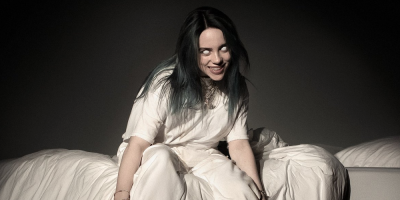
I know Billie Eilish is 19 already and in many countries, 19 is counted as an adult but, this is absurd that we see children in Hollywood growing up pushing toward the hole of a funnel in which they need to turn blonde and overly sexualized and the scariest part is being praised for that with adult actresses on such REVOLUTIONARY transformation! When Chopra said, "I think I just stopped and stared for a second" to praise Eilish beauty, it annoyed the hell of me. I asked myself, wasn't she stunning before such transformation? Was it necessary to boobify her innocence for someone like Chopra to be astonished?
Lolita Complex in HollywoodWe are seeing more and more sexualized images of children and teens in media not only by Hollywood but self-sexualization of these kids. How this can be happening? Well... The New York Times reported that "in 2018, tech companies uncovered over 45 million online photos and videos of children being sexually abused — more than double what they found in 2017." Well, possibly, I'm talking like a conservative who doesn't know what is freedom of choice but don't forget, I write about things the society doesn't like to hear. The TRUTH which they like to call Transgression or POLITICALLY INCORRECT!!!

In Hollywood, child sexualization among girls is very common starting from age 3. One of Shirley Temple’s first roles in 1932 was as an exotic dancer in a bar for soldiers in "War Babies." She was three years old at the time. An article in The Guardian analyzes Hollywood’s “Lolita complex” and the ways in which those in charge of Temple’s career exploited the sexualization of her childhood innocence.

According to NBC Natalie Portman says that "sexualized roles as a teen harmed her. We have thankfully begun talking about the need for consent in relationships, starting at a young age, but that can’t stop when the cameras roll." This is good to see the actresses are speaking about their trauma through their young age in Hollywood. I remember how Natalie was a sex symbol as young as age 10 after the movie, Professional. The cringe is not this only. It's about how they become sex symbols for a bunch of pedophile middle-aged men.
Do you remember when Britney Spears shaved her head? It was 2007 the time that seemed all of the child stars were cracking up. Something must have been very wrong with Hollywood if such icons had been driven to the point of a public meltdown. This is an old story with a never-ending happily ever after. In 1937, Graham Greene wrote these in a review of Shirley Temple’s film Wee Willie Winkie that "Her admirers—middle-aged men and clergymen—respond to her dubious coquetry, to the sight of her well-shaped and desirable little body, packed with enormous vitality, only because the safety curtain of story and dialogue drops between their intelligence and their desire." He claimed that perhaps Temple’s popularity with the public was more sinister than it was innocent and I do agree with him as we can see clearly what is going on in Hollywood.

Another example that recently spoke up is Matilda Star Mara Wilson who slammed Sexualization of Young Girls in Hollywood. Wilson is speaking out against the sexualization of young girls and sharing her own experiences of being objectified as a child star in an essay for Elle. She explains that someone wrote her fan letter, "his name was Don, or maybe Doug. He was a grown man, one I’d never met, and he wanted me to answer his fan letter. His writing was hard to read, but I could make out just enough: I love your legs, and Can I have your lip print on the enclosed index card?"
Ageism and its impact on societyAs Wilson says in her essay, "part of the problem is that people want to accept … how many Don-or-Dougs there are out there. Some of these predators might be unreachable, completely unable to understand their actions. Child stars are seen as theirs: their property, their fantasy. The sad and scary truth is that they have greater access to child stars these days." This is upsetting to see how many of these little girls turned to sex symbols at a very young age and what does it do to our society?
Our society is sick and it's designed this way by those in power to brainwash the mass. This is not a matter only in Hollywood anymore but its power and impact on the rest of the world are what makes it unique. Another poll of "2,000 teens found that nearly 75% had received pornographic direct messages from strangers, even if they had a private account. And 55% of victims of sex trafficking in 2015 met their abuser through a website, app, or text." This clearly shows disempowerment, and girls are particularly at risk of feeling like their voices are suppressed and that objectification is normal because girls’ perceptions of themselves are shaped in part by the perceptions of them that they receive (Bussey & Bandura 1238).

What does it tell you about these girls turning into women? This is where you should be seriously worried. Here comes the matter of ageism. Here's an example of which Millie Bobby Brown being sexualized Brown was the August 2017 cover of W Magazine where it listed the then 13-year-old child actor as part of a "Why TV Is Sexier Than Ever" magazine story. Now, why are you concerned about such a topic, and why ageism comes in handy to talk about it?
I read several articles about actresses been rejected for a role considering being too old. Now, what is too old by Hollywood's standards? Before making the biographical film about singer Stevie Nicks In Your Dreams (2013), Reese Witherspoon was one of the favored candidates for the leading role. But later on, when Nicks was asked again if Reese Witherspoon would be the protagonist, she replied, "I’ve already told (Reese) she’s almost too old." The truth is she was around 37 years old.
Anne Hathaway declared that after turning 30, job offers were limited, "when I was in my early twenties, parts would be written for women in their fifties, and I would get them. And now I’m in my early thirties, and I’m like, why did that 24-year-old get that part?". Do you want more?
Maggie Gyllenhaal by age 37 was told that she was too old to play the lover of a man who was 55. At 28, Elizabeth Banks was denied the role of Mary Jean in Spider-Man in 2002 and producers hired 18-year-old Kirsten Dunst, instead. Olivia Wilde, at 29-year-old, auditioned for the role of Naomi in The Wolf of Wall Street, she was rejected because she was too "sophisticated" for the role, and the casting team picked Margot Robbie instead. Emma Thompson, in Sense and Sensibility, was told that she was too old for Hugh Grant who was one year younger than her. 44-year-old Charlize Theron wasn’t rejected but was instead the one who turned down the offer to play a role in Wonder Woman because of her age. She declared in an interview "This is a great example of how Hollywood slaps you when you start aging." However, the casting crew wanted her to play Hippolyta, Wonder Woman’s mom. Remember that Gal Gadot is only 10 years younger than her. Here's to shock you more: Catherine Zeta-Jones was denied a role at the age of 19. She mentions that the director, "told me I was just a little bit too old and a little bit too pretty." for the role in Broadway in Aspects of Love. She was only 19!The Impact: Cultural Addiction to the Sexualization of MinorsYou should remember the movie "I Know What You Did Last Summer" in 1997 after which Jennifer Hewitt was subjected to endless disturbing questions about her breasts. The actress was barely 18 at the time yet the media prey on the former child star in degrading, misogynistic ways. Here we are, two decades and many child stars later, Billie Eilish became the victim of a similar unwanted sexualization. In 2019, when she was 17, a viral photo of the "Bad Guy" singer wearing a tank top "elicited a social media onslaught of slut-shaming, sexual objectification, and degradation." (source)
What we need to understand is that the fault is not in the girls either star or ordinary, but it is how such decisions are made by adults to dress girls in media in such an adult way for a publicized show, and the response it elicited from the public, reveals a prominent issue deeply entrenched in the entertainment industry. Young female stars are hyper-sexualized by the business that they are in, then either celebrated or criticized for that same sexualization by the public. Young stars really can’t win, no matter what they do. As grotesque as that would be, the truth is far more grotesque because the child and teen sexualization and pedophilia are far more normal than that.
As K. B. Hoyle in an article about the movie "Cuties" says, "It is the product of perverse people who are perverse consumers who drive a capitalistic structure to give us what we want. We are a culture not only tolerant of sexualized minors; we are addicted to the sexualization of minors. And it’s much easier to rage about the hypothetical pedophile in the shadows than it is to examine the shadowy corners of our own hearts and what our entertainment consumption choices have created."
Kids like Eilish rose to fame at a young age She became known for wearing baggy clothes that hide her frame in order to avoid being sexualized in the way so many young stars before her have. This alone sparked controversy and dialogue in the media, with many shocked that a child would not want their body to be objectified. What does it tell you about what is going on with the media? There is no way female stars can win this war! How sad it is to see Eilish predicting her future after the viral photo of her in "Bad Guy" by saying in an interview with Dazed that "There were comments like, ‘I don’t like her anymore because as soon as she turns 18 she’s a whore.’ Like, dude. I can’t win. I can-not win." and well, that's the TRUTH, She, Her, US cannot win!
April 27, 2021
Female Transgressive Writers of all time (Part 6)
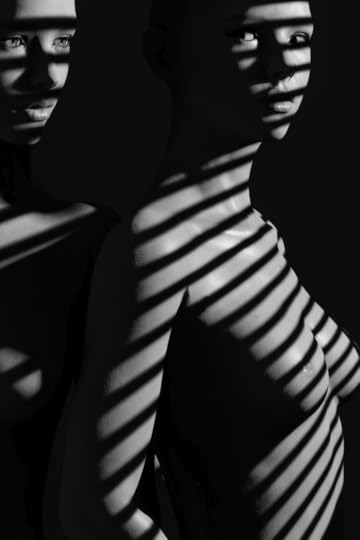
Time to talk about another 5 fantastic authors that I categorize under Transgressive Fiction according to their style and themes, how they use the power of writing to transgress the norms of their society and culture. Today we will talk about Elizabeth Wurtzel, Janet Fitch, Susanna Kaysen, Penelope Lively, Emma Donoghue.
 Elizabeth Wurtzel
Elizabeth Wurtzel(July 31, 1967 – January 7, 2020)
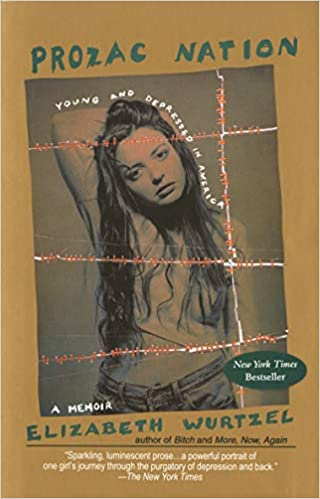
Elizabeth Lee Wurtzel was an American writer and journalist, known for the confessional memoir Prozac Nation, which she published at the age of 27. Her work often focused on chronicling her personal struggles with depression, addiction, career, and relationships. Wurtzel's work drove a boom in confessional writing and the personal memoir genre during the 1990s, and she was viewed as a voice of Generation X. In later life, Wurtzel worked briefly as an attorney before her death from breast cancer. (source)
That is all I want in life: for this pain to seem purposeful.― Elizabeth Wurtzel, Prozac Nation Janet Fitch
Janet Fitch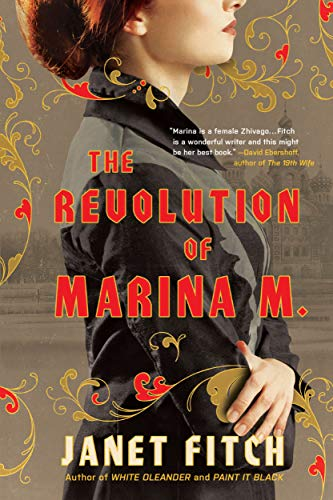
Janet Fitch is most famously known as the author of the Oprah's Book Club novel White Oleander, which became a film in 2002. Fitch was born in Los Angeles, a third-generation native, and grew up in a family of voracious readers. As an undergraduate at Reed College, Fitch had decided to become a historian, attracted to its powerful narratives, the scope of events, the colossal personalities, and the potency and breadth of its themes. But when she won a student exchange to Keele University in England, where her passion for Russian history led her, she awoke in the middle of the night on her twenty-first birthday with the revelation she wanted to write fiction. (source) Two of her favorite authors are Fyodor Dostoevsky and Edgar Allan Poe. (Ibid.) Her third novel, Paint It Black, named after the Rolling Stones song of the same name, was published in September 2006. Amber Tamblyn directed a 2016 feature film based on the book. (source)In the Revolution of Marina M.: A Novel, she "captures the epic grandeur of Russian novelist Leo Tolstoy, situating her characters in the pages of authentic history. Yet she also infuses her protagonists with transgressive sexual energy...vividly portraying Marina's sexual awakenings as she falls in and out of love... Readers of Tolstoy, Boris Pasternak, and Margaret Mitchell will thrill to this narrative of women in love during the cataclysm of war." (source)
“It's such a liability to love another person.”― Janet Fitch, White Oleander Susanna Kaysen
Susanna Kaysen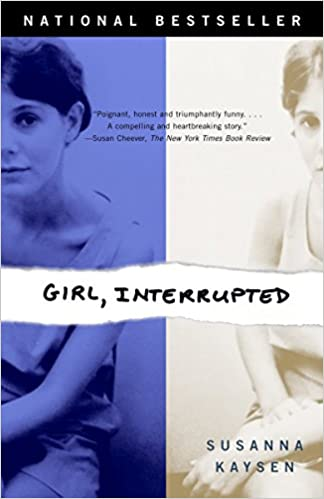
Susanna Kaysen is an American author, best known for her 1993 memoir Girl, Interrupted. This book is a best-selling (source) 1993 memoir by American author Susanna Kaysen, relating her experiences as a young woman in an American psychiatric hospital in the 1960s after being diagnosed with a borderline personality disorder. While writing the novel Far Afield, Kaysen began to recall her almost two years at McLean Hospital. (source)
Suicide is a form of murder - premeditated murder. It isn't something you do the first time you think of doing it. It takes getting used to. And you need the means, the opportunity, the motive. A successful suicide demands good organization and a cool head, both of which are usually incompatible with the suicidal state of mind.― Susanna Kaysen, Girl, Interrupted Penelope Lively
Penelope Lively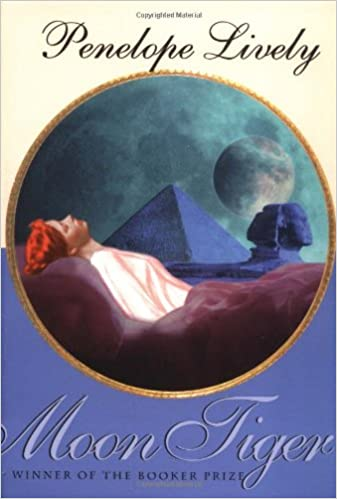
Dame Penelope Margaret Lively is a British writer of fiction for both children and adults. Lively has won both the Booker Prize (Moon Tiger, 1987) and the Carnegie Medal for British children's books (The Ghost of Thomas Kempe, 1973). Lively's first novel for adults, The Road to Lichfield, was published in 1977 and made the shortlist for the Booker Prize. (source) As with all of Lively's fiction, Moon Tiger is marked by Narrative Transgression regarding the power of memory, the impact of the past upon the present, and the tensions between "official" and personal histories. Besides novels and short stories, Lively has also written radio and television scripts, presented a radio program, and contributed reviews and articles to various newspapers and journals.
It seems to me that anyone whose library consists of a Kindle lying on a table is some sort of bloodless nerd.― Penelope Lively Emma Donoghue
Emma Donoghue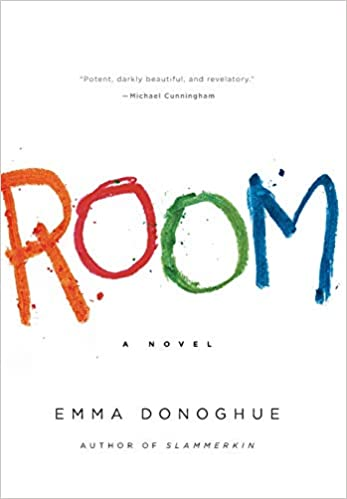
Emma Donoghue is an Irish award-winning novelist, screenwriter, and playwright, living in Canada. Set in Dublin during the Great Flu pandemic in 1918 (and written before COVID-19), her novel The Pull of the Stars (2020) is about a nurse-midwife, a doctor, and a volunteer helper living through three days in a maternity quarantine ward. Her novel Room(2010) was shortlisted for the Man Booker and Orange Prizes and has sold over two million copies and made it into a movie in 2015. The story is about a young woman who has been held captive for seven years and whose five-year-old son was born in captivity.
People don't always want to be with people. It gets tiring.― Emma Donoghue, RoomCheck the links below if you're interested to know more about female transgressive authors.
April 22, 2021
Writing to Transgress: A fight against feeling like a fraud
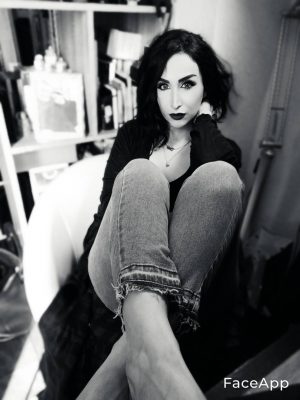
Pema Chödrön, an American nun in the Kagyu lineage of Tibetan Buddhism, in an interview in 1993 said, "my models were the people who stepped outside of the conventional mind and who could actually stop my mind and completely open it up and free it, even for a moment, from a conventional, habitual way of looking at things. If you are really preparing for groundlessness, preparing for the reality of human existence, you are living on the razor’s edge, and you must become used to the fact that things shift and change."
This conversation made me think, why we need to write to transgress or break the bonds and limiting boundaries that control what we say and how we do: To step outside of our comfort zone and completely open our mind and free it.
Naomi WALLACE, an American playwright, said that writing to transgress means to “step over the line, redraw the line, erase the line, even multiply the lines so that we sit up, step forward and strike out” (source). However, this style of writing is fighting against the status quo, the act of transgression must have a purpose. As women writers, how shall we write and what we should write that transgress limitations purposefully?
As an example, Deirdre LASHGARI, an American English literature educator, is best known for her edited book Violence, Silence, and Anger: Women’s Writing as Transgression (1995), which focuses on the works produced by well-known authors such as Harriet Jacobs, Virginia Woolf, Adrienne Rich, and Audre Lord, Senegal’s Mariama Ba, Lebanon’s Etel Adnan, and Jamaica’s Sistren Collective (source) and used transgressive writing to express women’s stories of violence and anger writing against normative expectations.
When we talk about writing as transgression, what boundaries are we attempting to step over, redraw, or erase? What do we do differently?
Transgression is a common word, circulated enough to make us believe we understand what it is. When we ask what transgression is, normally we hear the term as an indication of breaking a law, commit anything illicit, disrupting, and rebelling against social order and norms. That means our assumption of transgression is nothing more than deviance. It is true that transgressive writing is about rebelling and going against the stream but that does not limit it to merely the breaking of a law or going against normative social or cultural limitations.
In my idea, transgression is what constitutes our identities, and without it, we could have no sense of our own subjectivity. It is the transgressive otherness that forms and informs who we are. Hence, transgression is when we cross a line, step across some boundaries, or move beyond convention and comfort zone and that is the duty of a writer, in any field, to explore what is not being explored.
Writing to Transgress means as Sjollema and Hanley (2013) expressed, to “represent a residual power that acts locally and provides a voice to the powerless“. Riding defines Freire’s method of literacy work as “raising consciousness,…” and “a critical comprehension of reality.” (in the New York Times, 1985).
Writing to transgress is to build an understanding not merely of the text but of reality. We need to go beyond pop-fiction love stories and superheroism action-adventure and dive deeper into the dark waters of twisted relationships and accidental hurt, ordinary people’s lives, the complex mind, and human behavior, the uncomfortable unknown. It is to give voice to the voiceless, the oppressed, and the unheard. That is where fiction should focus on.
In Pedagogy of the Oppressed, Freire stated that “cultural conquest leads to the cultural inauthenticity of those who are invaded; they begin to respond to the values, the standards and the goals of the invaders.” (1970, p 153) His main pedagogy was developed in response to the impacts of cultural and religious persecution and asserts that education enables “the oppressed to ‘read the world’ and, through writing, to communicate their own experience to others” (Kane, 2001).
Writing to transgress means to identify “the prevailing forces that work together to silence people and create a culture of judgment: family dynamics, schools, churches, public media, and the need to make a living (Louise Dunlap, 2007, pp. 20-21). Hence, she believes that the best advice we can give ourselves when we write is to be aware of self-judgment and set it aside.
When writing in a form of talking about what normally people avoid talking about, it sometimes may feel fraudulent. Fraudulent, as Peggy McIntosh (1984) explains, may mean having no confidence in oneself and one’s abilities. This can play the psyche of the individual and in society at large. She mentions that we feel like frauds because by “taking the pulpit or taking the podium, or taking the front of the class, or taking a position in the news… positions which the world associates with people of merit and importance. The higher we go in those hierarchical structures, the more likely we are to feel, hollowly and in our inner selves, that we do not belong.”
As a woman writer in the genre of transgressive fiction and coming from a country like Iran where patriarchy defines a woman’s identity, attitudes towards women’s stories and lives have a huge impact on devaluing my work and feeling like a fraud. To fight against ideas that a woman needs to be helpful and nice, I write to disrupt these societal expectations. If you feel repressed, unconfident about defining your own identity, and anxious about judgments of yourself, your community, and norms, take a step forward, write to change this vicious cycle, write to transgress.
Original Source: http://booksbywomen.org/writing-to-transgress-a-fight-against-feeling-like-a-fraud/
April 19, 2021
Female Transgressive Writers of all time (Part 5)

Time to talk about another 5 fantastic authors that I categorize under Transgressive Fiction according to their style and themes, how they use the power of writing to transgress the norms of their society and culture. Today we will talk about Lola Smirnova, Lili Anolik, Fannie Flagg, Pauline Réage, and Ursula K. Le G.
 Lola Smirnova
Lola Smirnova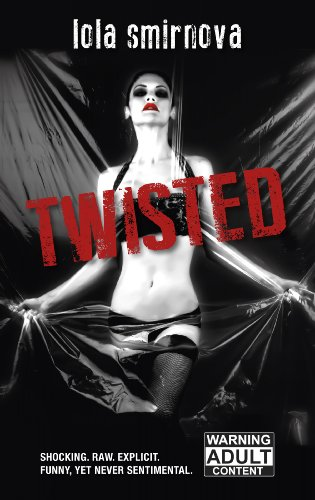
Lola Smirnova is an author from Ukraine. On her Goodreads, she stated that she loves twisting a suspenseful tale through the dark lens of realism around the sexual underworld, so clocked in secrecy and shame. Lola’s work is inspired by real-life events and is meant for open-minded readers who are not afraid of a little blood, sweat, and semen. Her debut novel Twisted was released in 2014. The book was placed as Honorable Mention in General Fiction Category of The 2014 London Book Festival’s Annual Competition and took 3rd place at The Drunken Druids International Book Award 2014.
Although they are often called cabarets, and occasionally there is even strip-dancing involved, you shouldn't associate them with merrymaking or extravaganza...― Lola Smirnova, Twisted Lili Anolik
Lili Anolik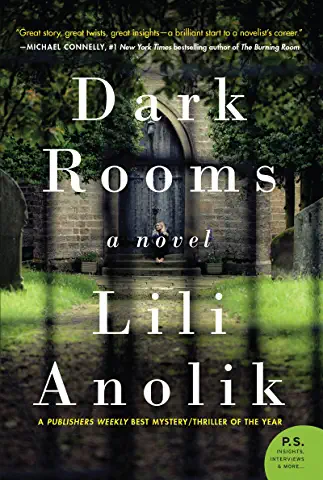
Lili Anolik is a contributing editor at Vanity Fair and a writer at large for Air Mail. Her work has also appeared in Harper's, Esquire, and The Paris Review, among other publications. Her latest book, the Los Angeles Times bestseller, Hollywood's Eve: Eve Babitz and the Secret History of L.A., was published by Scribner in 2019. Her debut novel, Dark Room, combines the verbal dexterity of Marisha Pessl’s Special Topic in Calamity Physics and the haunting atmospherics and hairpin plot twists of Megan Abbott’s Dare Me.
I haven't even stepped all the way inside the front door when the smell hits me: a kind of stale fustiness, a combination of dust and old furniture, of meals cooked and eaten, of frayed carpeting. If sadness has a scent, this is it.― Lili Anolik, Dark Rooms Fannie Flagg
Fannie Flagg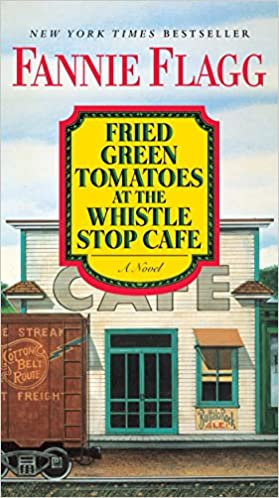
Fannie Flagg is an American actress, comedian, and author. She is best known for the 1987 novel Fried Green Tomatoes at the Whistle Stop Cafe, which was adapted into the 1991 motion picture and remained on The New York Times bestseller list for 36 weeks. (source) It was praised by both Harper Lee and Eudora Welty. The novel is told in both past and present tense by the characters Ninny Threadgoode (past) and Evelyn Couch (present) and focuses on the town of Whistle Stop, Alabama, circa the 1920s and 1930s. It is about the unlikely bonds forged between women who seemingly have nothing in common except restlessness. Although it is not explicitly labeled as a lesbian relationship, every resident both knows about and accepts Idgie and Ruth's relationship, making lesbianism a theme in the novel.
You're just a bee charmer, Idgie Threadgoode. That's what you are, a bee charmer.― Fannie Flagg, Fried Green Tomatoes at the Whistle Stop Cafe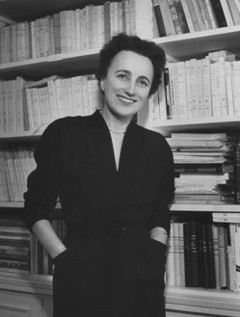 Pauline Réage
Pauline Réage(23 September 1907 – 27 April 1998)

Anne Cécile Desclos was a French journalist and novelist who wrote under the pseudonyms Dominique Aury and Pauline Réage and is best known for her erotic novel Histoire d'O (Story of O). Desclos' lover and employer Jean Paulhan had made the remark to her that no woman was capable of writing an erotic novel. To prove him wrong, Desclos wrote a graphic, sadomasochistic novel that was published under the pseudonym Pauline Réage in June 1954. (source) Titled Histoire d'O, with a sympathetic preface by Jean Paulhan which nevertheless did not reveal her identity, it was enormous, though controversial, commercial success. (source) The book caused much speculation as to the identity of the author. Many doubted that it was a woman, let alone the demure, intellectual, and almost prudish persona displayed in Dominique Aury's writings. Many well-known male writers were alternately suspected to be the author, including André Malraux and Henri de Montherlant. In addition, the book's graphic content sparked so much controversy that the following March the government authorities brought obscenity charges against the publisher and its mysterious author that were thrown out of court in 1959.
Keep me rather in this cage, and feed me sparingly, if you dare. Anything that brings me closer to illness and the edge of death makes me more faithful. It is only when you make me suffer that I feel safe and secure.― Pauline Réage Ursula K. Le Guin
Ursula K. Le Guin(October 21, 1929 – January 22, 2018)
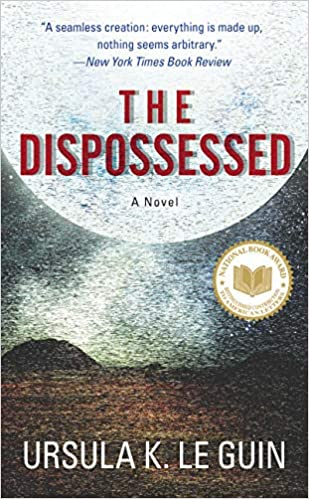
Ursula Kroeber Le Guin was an American author best known for her works of speculative fiction, including science-fiction works set in her Hainish universe, and the Earthsea fantasy series. It is easy enough to locate anarchist themes in the science fiction of Ursula K. Le Guin. In her 1974 masterpiece The Dispossessed, Le Guin made two major contributions to the philosophy of postmodern anarchism. She created a fictional anarchist language called Pravic, which underscores the importance of linguistics for any contemporary anarchist project. And she developed an equally radical concept of time, creating the possibility of chronotopic anarchy. The existence of an explicitly anarchist society on the moon of Anarres has led many critics of The Dispossessed to focus only on the traditional anarchist themes of this novel. Yet the truly radical legacy of this novel (and of Le Guin’s other major works from the late 1960s and early 1970s) is that these works transgress the boundaries of conventional anarchist thinking to create new forms of anarchism that are entirely relevant to life in the postmodern condition. Le Guin updates the conventional anarchist project and positions anarchism to move into the third millennium. (source)
When you light a candle, you also cast a shadow.― Ursula K. Le GuinCheck the links below for more transgressive fiction recommendation.
April 15, 2021
Postmodern Literature Characteristics: Define the moral and purpose of Transgressive fiction?
Postmodern Literature
Postmodern Characteristics
Absurdism and Transgressive Fiction
Conclusion

Well, well, well.
I've been asked by someone, "so what is the purpose in your stories, what is moral, what am I learning here." and this made me think to write a short article on a trend of literary fiction in which we don't try to convey a goal or purpose in the story. My writing particularly can be categorized under transgressive fiction and has many commonalities with absurdism but what gives them the quality I'm looking for is postmodernism perspective to literature. I would like to use this to expand my response to such a reaction of so what is the goal? After such a conversation, I felt purposeless for few minutes. Then I thought what if there’s good to be caused by purposelessness?
Postmodern LiteratureAbsurdist fiction is a genre of literature that began in the 1950s and 1960s mainly in France and Germany as a result of post-war disillusionment. This is a specific time period in which gave birth to Postmodern literature and what that label entails. Postmodern literature is defined as literature written after World War II through the current day. Works of Postmodern literature reflect a society's social and/or political viewpoints, shown through realistic characters, connections to current events, and socioeconomic messages. The writers are looking for trends that illuminate societal strengths and weaknesses to remind society of lessons they should learn and questions they should ask. So when we think of Postmodern literature, we cannot simply look at a few themes or settings. Since society changes over time, so do the content and messages of this writing. It is from these real-life themes that we find the beginning of a new period of writing.
Moving forward, we have Postmodern literature that is a form of literature characterized by the use of metafiction, unreliable narration, self-reflexivity, intertextuality, and which often thematizes both historical and political issues. This style of experimental literature emerged strongly in the US in the 1960s through the writings of authors such as Kurt Vonnegut, Thomas Pynchon, Philip K. Dick, Kathy Acker, and John Barth. (source) Postmodernists often challenge authorities, which has been seen as a symptom of the fact that this style of literature first emerged in the context of political tendencies in the 1960s. (source)
Linda Hutcheon claimed postmodern fiction as a whole could be characterized by the ironic quote marks, that much of it can be taken as tongue-in-cheek. This irony, along with black humor and the general concept of "play" are among the most recognizable aspects of postmodernism. (source) So, Postmodern literature is a form of literature that is marked, both stylistically and ideologically, by a reliance on such literary conventions as fragmentation, paradox, unreliable narrators, often unrealistic and downright impossible plots, games, parody, paranoia, dark humor, and authorial self-reference. (source) It is important to know that Postmodern authors tend to reject outright meanings in their novels, stories, and poems, and, instead, highlight and celebrate the possibility of multiple meanings, or a complete lack of meaning, within a single literary work.
Postmodern CharacteristicsPostmodern literature often rejects the boundaries between 'high' and 'low' forms of art and literature, as well as the distinctions between different genres and forms of writing and storytelling. Here I have some common stylistic techniques that are often used in this form of literature:
Pastiche: The taking of various ideas from previous writings and literary styles and pasting them together to make new styles. The word implies a lack of originality or coherence, an imitative jumble, but with the advent of postmodernism, pastiche has become positively constructed as deliberate, witty homage or playful imitation ( source ). Intertextuality: The acknowledgment of previous literary works within another literary work. It includes allusion, quotation, calque, plagiarism, translation, pastiche, and parody ( source ). Metafiction: The act of writing about writing or making readers aware of the fictional nature of the very fiction they're reading. It is frequently used as a form of parody or a tool to undermine literary conventions and explore the relationship between literature and reality, life, and art ( source ). Temporal Distortion: The use of non-linear timelines and narrative techniques in a story. The author presents multiple possible events occurring simultaneously—in one section the something chaotic is happening while in another section nothing happens and so on—yet no version of the story is favored as the correct version( source ). Minimalism: The use of characters and events which are decidedly common and non-exceptional characters. It can be characterized as a focus on a surface description where readers are expected to take an active role in the creation of a story. Generally, the short stories are "slice of life" stories ( source ). Maximalism: Disorganized, lengthy, highly detailed writing. In the arts, maximalism, is an aesthetic of excess. The philosophy can be summarized as "more is more", contrasting with the minimalist motto "less is more"( source ). Magical Realism: The introduction of impossible or unrealistic events into a narrative that is otherwise realistic. Commonly found in novels and dramatic performances. ( source ) Faction: The mixing of actual historical events with fictional events without clearly defining what is factual and what is fictional. ( source ) Reader Involvement: Often through direct address to the reader and the open acknowledgment of the fictional nature of the events being described. ( source )Absurdism and Transgressive FictionGoing back to the root of Absurdist Fiction, we can find influences from the Romanticism trends in Paris in the 1830s, the collapse of religious tradition in Germany and the societal and philosophical revolution led by the expressions of Søren Kierkegaard and Friedrich Nietzsche, Absurdist fiction takes form most commonly in a novel, play, poem, or film, that focuses on "the experiences of characters in situations where they cannot find any inherent purpose in life, most often represented by ultimately meaningless actions and events that call into question the certainty of existential concepts such as truth or value". (source)
This is very similar to a Transgressive Fiction character, in that the character is feeling confined by the norms and expectations of society and breaks free of those confines in unusual or illicit ways. As I explained what is Transgressive fiction in my previous article, I can add that there are common elements in both absurdist and Transgressive fiction including satire, dark humor, incongruity, the abasement of reason, and controversy regarding the philosophical condition of being "nothing"(source) Both genres are characterized by a focus on the experience of the characters, centered on the idea that life is incongruous, irreconcilable and meaningless(source).
The Absurdist movement can be the root of Transgressive fiction, as well as an extension of the Existentialism movement. (source) Existentialism, focuses on the pointlessness of humans, particularly, the emotional angst and anxiety that happens when the existence of purpose is challenged (source). Absurdist Fiction and Transgression is central to the work of Franz Kafka, Albert Camus, Samuel Beckett, and Eugène Ionesco. (source)In short, the difference between existentialism and absurdism comes in their solution to finding meaning in life. They both agree that the universe is inherently meaningless, but existentialism states that we must create our own meaning.
ConclusionThe existentialist mantra, at least the Sartrean, is existence precedes essence; "we are born, we exist, and then we must choose to craft our own essence, our own purpose." (source) But Absurdism focuses on the tension between a meaningless universe and our constant striving to find meaning. This tension is what gives rise to the Absurd and later Transgressive fiction and art. Camus argued that we are all struggling with this tension and so we have alternatives: "we can kill ourselves, we can deny the absurdity and take refuge in myths and religion, or we can embrace the absurdity."(source) Mixing this with Postmodernism, we see striving for meaning all of a sudden become meaningless.
John Barth, the postmodernist novelist in his 1967 essay "The Literature of Exhaustion" explains the need for a new era in literature after modernism had exhausted itself. His ideal Postmodernist author neither refusing nor immitating the 20th-century Modernist parents or his 19th-century pre-modernist grandparents (source) so, "the ideal Postmodernist novel will somehow rise above the quarrel between realism and irrealism, formalism and "contentism," pure and committed literature, coterie fiction, and junk fiction..." (Ibid.)
The novelist and theorist Umberto Eco, in his Reflections on '', explains his idea of postmodernism as a kind of double-coding, and as a transhistorical phenomenon. He adds that Postmodernism isn't a trend to be "chronologically defined, but, rather, an ideal category". Instead of the modernist quest for meaning in a chaotic world, the postmodern author eschews, often playfully, the possibility of meaning, and the postmodern novel is often a parody of this quest. This distrust of totalizing mechanisms extends even to the author and his own self-awareness. So postmodern writers often celebrate chance over craft and employ
metafiction to undermine the author's "" that is the existence of narrative primacy within a text, the presence of a single all-powerful storytelling authority.
To conclude, as a writer, I refuse to clearly define the meaning for my readers. I believe it is the duty of the reader to discover the meaning from their own perspective and thus, they can relate to the story on a deeper level. As Camus said, ‘Il faut imaginer Sisyphe heureux.’ which means one must imagine Sisyphus happy.’ while if you know the story of Sisyphus, you may wonder, was he? This is a way to define my type of story. You find a meaning and a purpose in them based on your own comprehension. Therefore, if you haven't found any meaning, purpose or asked yourself "so what" after reading my stories, rethink. That can define who you really are: a purposeful deep-thinker or else?
April 14, 2021
Writer vs. Writer Interview: Bryan Thao Worra
Well, today, I have an interview with yet another amazing poet, Bryan Thao Worra. He is the Lao Minnesotan Poet Laureate and the President of the International Science Fiction and Fantasy Poetry Association. The author of several amazing books of poetry and his work has been translated into Spanish, French, German, Korean, Thai, Tagalog, Bengali, and Lao. Not to forget to mention that he holds over 20 awards for his work and represented the nation of Laos as a Cultural Olympian during the 2012 London Summer Games. His poetry themes are widely on the role of memory and the imagination in refugee resettlement, social justice, and adaptation. His influences range from ancient Southeast Asian epics to punk rock, pulp fiction, horror, and the US Secret War for Laos. I can say, in this interview, you will get to know the coolest poet of our century.

Ok, finally, here you are Brian. Let us start with when did you decide to become a writer and as a child, what did you want to do when you grew up?
I don’t think there was ever one single moment, but many moments where I found myself considering and ultimately understanding that writing would be a fundamental element of my journey. At one point as a youth, I was so cognizant that I was going to be a writer that I made an effort not to be a writer, looking at a possible career in the US State Department and foreign service, philosophy, possibly the Marines, truck driving, or public relations, among other fields.
But in the end, I realized it didn’t matter whether I was slinging pizzas in Ohio or working on policy suggestions in Washington D.C. I was still taking unscheduled breaks to write down poems or ideas for stories I’d finish as soon as I got home. I didn’t see writing as a hobby or a job, but as a fundamental element of my being, even more than my culture, nationality, or family. All of those could change or be taken away from me, but I’d still be trying to write at any opportunity, anyway, that’s possible, and it was no burden.
Me too. Writing is part of our existence I guess. When your first book was published and what was it about?
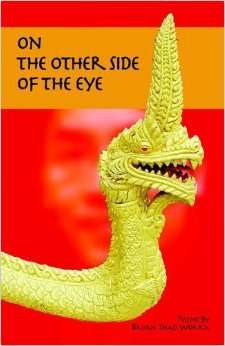
There are several books that could be considered my first book, depending on whether we also include chapbooks or zines. But for most purposes, my 2007 Lao American science fiction poetry collection On The Other Side Of The Eye from Sam’s Dot Publishing is regarded as my first full-length book. It largely explored the Lao diaspora 32 years after the end of Southeast Asian wars of the 20th century and where we fit in the bigger picture of the cosmos. Could we rebuild, remember, and yet still wonder deeply?

What about poetry attracts you?
Even after 30+ years, there are poems that still surprise me. I enjoy it because they demonstrate that despite so many people writing and creating around the world, there are still ideas and perspectives that have not been heard. The prose often tries to present itself with great clarity and to hem in our world with precise language, definitions, facts, and an authoritative, definitive way of expressing particular ideas. And there is certainly a time and a place for that.
Poetry, however, leaves us openings to become comfortable with ambiguities and uncertainties, and to embrace subjects requiring us to read between the lines, to accept there are questions we can ask even if they might never have an answer. Poetry plays with any culture’s language and reminds us of the power of “what if”?
When done well, poetry will shake us out of taking any word, any sentence for granted and reward us for looking deeper into something another person Is trying to tell us. It is a form robot and artificial intelligence will struggle with.
I'm in love with sci-fi and mostly my stories have sci-fi inclusion but what amazes me is how you integrate this genre into poetry. That's inspiring. You’re also the president of Science Fiction and Fantasy Poetry Association. Can you tell us a bit more about it?
The Science Fiction and Fantasy Poetry Association was founded over 42 years ago in 1978 and has grown to almost 400 members in over 19 nations. The association brings together readers and writers of poetry influenced by science fiction, fantasy, and horror.

Over the decades we found there are many ways to approach this. Our members come from all walks of life, including scientists, professors, students, video game designers, musicians, artists, novelists, lawyers and many more. Some write exclusively speculative poetry, for others, it is one part of their creative output, but it is a big enough table for anyone to come to it.
How do we express a future we can see ourselves, our descendants in? How do we create books that dare to wander and explore our traditions and our potential? What is the most imaginative and challenging idea we can explore within a poem? For some these are everyday questions, for others, it is an idea that is opening amazing inspiration for them, and I’m happy the poets of the SFPA are helping to expand those conversations.
Out of context question, do you believe in other life forms than what we have on earth? I mean do you believe in aliens?
When we look at the myths and legends around the world, even in the traditions of Southeast Asia, the elders were pretty insistent that very unusual beings were visiting with us who do not resemble most of the humans we see around us today. I think we have to be very open-minded to the possibility.
100% agreed. Weel, do you think they're already live among us?
Alien life may not look like what we’re expecting at all. It might be microscopic, plant or fungus-based, non-humanoid, or beyond our own limited human sensory limits of what we can touch, see, smell, or hear, even with radio telescopes or other measuring devices.
We have to be prepared that despite our human egos and role in the affairs of the planet, aliens may not find us interesting to communicate with or observe, that our ways are likely primitive, uninteresting, possibly even barbaric to those who can cross the stars. We may likely represent little more than a walking vitamin gel capsule to others who may not even need us for even rudimentary nutrition needs. After nearly a century of sending so many radio signals and transmissions to the stars, I can only imagine what it must look like to anyone who’s listening.
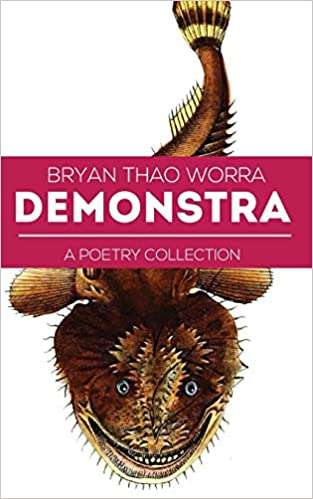
The walking vitamin capsule inspires me to write a story! Do you think creative writers could be half aliens?
I think if they aren’t half aliens, they have to at least be alien sympathizers to really excel. A writer often serves as an ambassador of imagination and the deeper facts and truths of the cosmos. So, we have to see even the most ordinary elements of our world through a lens where we feel at least a little alien to it all. Writers need empathy with others who have never seen the world the way we do and to make our best effort to explain it to our readers, sometimes directly, sometimes less so.
Occasionally, you run into a writer who definitely makes you suspect they’re literally part alien. But alas, it’s not my place to name names here.
Haha, well. Please text me their names :) Ok, more normal questions: What do you think makes a good poem?
There’s no single standard for a good poem, these days. What’s good to you may be boring to another, or it might meet the needs of your reader in a particular moment, but still age badly as certain pop songs in a matter of months. Some might please a teacher but bore your people outside of a classroom. Some can be read at a concert or a new year festival easily, but others can only be enjoyed in a quiet moment by a river or in your apartment.
You have to look at the language used in the poem and ask a hypothetical question: How would a reader enjoy this, no matter what emotional effect you’re going for, both in the present moment and 100 to 1,000 years from now. What’s been written in a way they’ll remember it, and your particular way of phrasing it will come quickly to mind for a particular occasion?

In the end, I believe a good poem makes you want to write another good poem. A great poem makes others, including yourself, want to write more poems, and read more poems, good or otherwise. And that may seem like an odd distinction, but it’s vital to the joy of this type of art.
Wow, I'm learning a lot from you. Thanks for sharing these. May I ask how long does it take you to write a book and what inspires you the most?
My first collection took approximately 5 years of fiddling around with the overall manuscript until I found one that could interest a publisher. But once I had a handle on that, it has taken about a year for most of my books. It’s rare for more than 2 years to go by without me creating a new collection.
One development in this process has been a move away from print books compared to developing e-book collections and physical exhibits, and more of an interest in returning to the smaller chapbook format that seems to meet more of the poetry-reading needs of our community.
I draw my inspiration from the traditions of my community and culture, especially the smaller stories at risk of falling between the cracks. I’m often interested in exploring the things we normally say aren’t supposed to the subject of poetry, the things we’re not supposed to consider beautiful or interesting. I usually look for ways to approach those subjects from angles that aren’t immediately obvious or instinctive. This helps to move a poem beyond the merely documentary, giving us reasons to return to a poem again long after we first read them.
Do you have any writing routines? What is your work schedule like when you're writing?
My best writing comes when there’s no one around and few distractions, often late at night such as 3 AM. The larger question is that ideally, I have approximately 3-4 projects going at any time that I can switch to happily with a reasonable but soft deadline for getting them done. I know what needs to be filled in, and I know that most don’t require me to fit in everything except the kitchen sink to make them, so it’s easier to finish most of those on time.
It takes discipline to be effectively flexible and playful enough to write poetry and to create in a way that you are open to outcome, not attached to the outcome. It was difficult for me at first to learn that the pauses, the breaks, the wandering around are just as important to your creative process so that you can come back to each line, each poem with fresh energy. Like good cooking, some poems you can create in 5 minutes, others you must take time and watch it carefully to consistently get a good result.

What does your family think of your writing?
Like most poet families, they appreciate that I do this for a living, even if they don’t often understand why or how. But they’re happy I have something to do. And that’s a fine start.
The why and how is important. Until we earn millions, then no one wonders anymore. What was one of the most surprising things you learned in creating your poems/prose?
A good poem surprises others when they read it. A great poem is a bit of a time traveler, in that it will fade in and out of relevance, but returns to importance across the decades and often in ways that can surprise even the poet who wrote it. This is difficult to master, but it is not impossible.
Many would be surprised how much just a few lines from a good poem change the world of that poet and their nation, even if they are not always understood the way the poet intended them. For example, look at the lyrics of Bruce Springsteen’s “Born in the USA,” and how it achieved its legendary popularity among the people he was directing it towards. Many poems take on similar lives, but we can never be certain what will be catching fire, and what is as fleeting as a morning bird’s song.

Which of your books is your favorite?
It depends on how you count particular types of books, but generally at least 8, although many of them are out-of-print or online only. Each of them was designed to be very different from the other in terms of themes and structure, so it’s hard to easily pick one as a favorite.
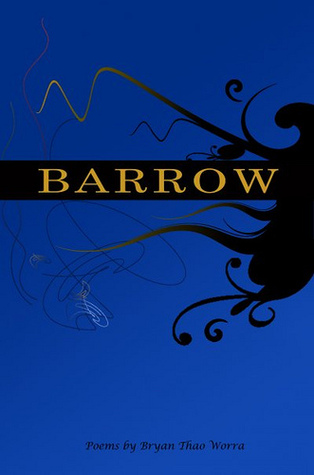
BARROW (Sam’s Dot), for example, was an inversion of the idea that a dictionary entry tries to define the meaning of a word into a handful of prose sentences, so, for a change, I decided to see what happened if a word was given a full book of poetry to try and define itself through a variety of poems in different styles. My 2013 collection DEMONSTRA (Innsmouth Free Press), on the other hand, took a break from my usual style and included the largest number of long poems I have written for one book, compared to the others.
Do you have any upcoming books coming? What is it about? Where we can get a copy?
My most recent one is Before We Remember We Dream, and it explores the history and impact of the 45th anniversary of the Lao diaspora intertwined with pop culture, science fiction, time, memory, and imagination. This collection is also exploring how we use art and illustrations throughout a collection with the help of the acclaimed artists Nor Sanavongsay and Sisavanh Phouthavong Houghton. When you order it directly from Sahtu Press, you get a personalized envelope as part of a special project to push the boundaries of how do poets build a connection between their readers and community.
That's lovely. Need to get my copy. Do you have any suggestions to help others to become better writers/poets? If so, what are they?
I have many, but with poetry, it is often best presented and discussed one on one, with the understanding that over time you will change and grow and constantly need to learn and retrain yourself. That’s part of the joy and liberation of poetry. Unlike prose where there are a certain arc and expectation of monetization, poetry can change so much but you create it without worrying if it will land you a lucrative publishing deal. You write it just because it pleases you, whether you’re a prince, a monk, a professor, or a pauper.
But one of the important ideas I try to encourage for everyone I mentor is to embrace the journey of finding your own voice. You don’t have to worry about sounding like Stephen King, George R.R. Martin, or J.K. Rowling. We already have them, and the works they’re bringing into the world. What we need is you, and the verse and tales you can create when you write to the outermost limits of your imagination. Approach that with a kind and helpful heart and you’d be surprised how much you can transform that way. Good luck!
Thank you Brian for your time and for sharing this inspiring notion. If you're interested to get to know Bryan better please check:
The Science Fiction and Fantasy Poetry Association
October 10, 2018
ENARO is Out
The wait is over. ENARO is available on Amazon both paperback and kindle versions. You can download the kindle version for free until 15th October.
Enjoy and don't forget reviews :) thank you



